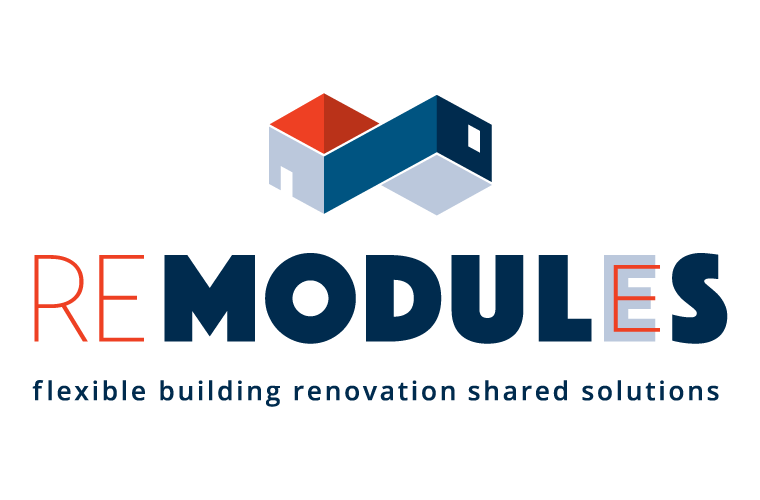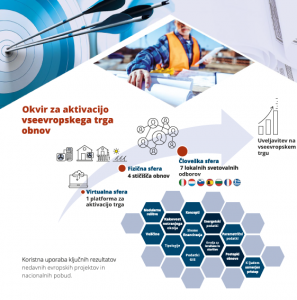
Call for proposals
2020 programme, LC-SC3-B4E-1-2020 – Towards highly energy efficient and decarbonized buildings
Duration
1. November 2020 – 31. October 2023
Total eligible costs
€ 2 099 518,75
Contact at IRI UL
Project Consortium
- Huygen Installatie Adviseurs (HIA – NL (koordinator))
- STICHTING ISSO (NL)
- BOUWHULP GROEP (NL)
- National Research Council, Institute for Construction Technologies (IT)
- CERTIMAC (IT)
- EUROPEAN ACADEMY OF BOLZANO, Institute of Renewable Energy (IT)
- SYMPRAXIS TEAM (GR)
- CENTRE FOR RENEWABLE ENERGY SOURCES AND SAVING FONDATION (GR)
- Valencia Institute of Building (ES)
- UBIK GEOSPATIAL SOLUTIONS (ES)
- R2M SOLUTION (FR)
- DOWEL MANAGEMENT (FR)
- ENERGY EFFICIENCY CENTER – ENEFFECTFOUNDATION (BG)
- Inovacijsko-razvojni inštitut Univerze v Ljubljani (SI)
- META GROUP (IT)
- International Union of Property Owners (BE / EU)
Key Challenges
In order to reach the 2050 decarbonisation targets, most European buildings require renovation. Yet, many supply and demand side barriers prevent building renovation from reaching the necessary scale in the residential sector. A wealth of solutions has been developed in a large number of European projects, on technical solutions, innovative business models and financing schemes for renovation practices in EU, generally supporting holistic people-centred solutions, involving the whole value chain. However, one of the main barriers remains the absence of market uptake strategies able to capitalize the results of technical and non-technical solutions developed in the framework of FP7 and H2020 EU-funded projects on deep renovation over the last 5 years. This specific barrier is critical both on policy side as on market side, and it is considered the missed opportunity of EU funded projects. re-MODULEES specifically aims, as CSA, to addressing this shortcoming.
Aim
The overall aim of re-MODULEES is the creation of the EU-wide retrofit market activation framework in the residential building sector, supported by digital and physical Renovation Hubs at the member state and EU level. Modularity is to be understood as:
- multi-level: regarding the “breakdown” of the overall retrofit process into standardized segments, energy efficiency and clean energy solutions, to isolate the most effective tools and approaches;
- multi-target: regarding the “customization” of retrofit solutions according to regional climatic, building, socio-economic and market conditions, to maximize cost-reduction, business spill overs and local impact.
re-MODULEES will achieve this by four key pillars:
- Clustering of efforts and evidences capitalizing key outputs from relevant EU projects;
- Digitalizing these key outputs to make them attractive to end-users and easily accessible in virtual Renovation Hub, an on-line, GIS-based, open source platform;
- Enhancing the impact of current EU projects key exploitable results (KERs)
- Fostering the implementation of renovation practices by establishing 4 physical Renovation Hubs, one at the European scale, endorsed and operated by the Dutch market as pioneer in the renovation market, and 7 Local Advisory Boards (LABs) in EU-relevant pilot markets (BG, ES, FR, GR, IT, NL, SI), leading to a further roll out in other Member States.
Key Objectives
- Objective 1: To make deep renovations easier, faster and more attractive for stakeholders by fostering market uptake and giving access to key results of relevant European projects
- Objective 2: To nudge relevant stakeholders to renovation by fostering holistic consumer-centred business models and decision-making tools, supported by evidence-based performances
- Objective 3: Facilitate decision making on deep renovation by tackling demand and supply sided social, financial and legal barriers
- Objective 4: Fostering the implementation of the re-MODULEES actions in seven demonstration pilot markets
- Objective 5: To roll out the re-MODULEES concept on a European level, supported by a go-to-market exploitation at MS-level
You’re welcome to visit the website https://re-modulees.five.es, where readers can explore and view our results and tools developed across Europe. Additional tools can be proposed by anyone, but they must be approved by the regional administrator.


